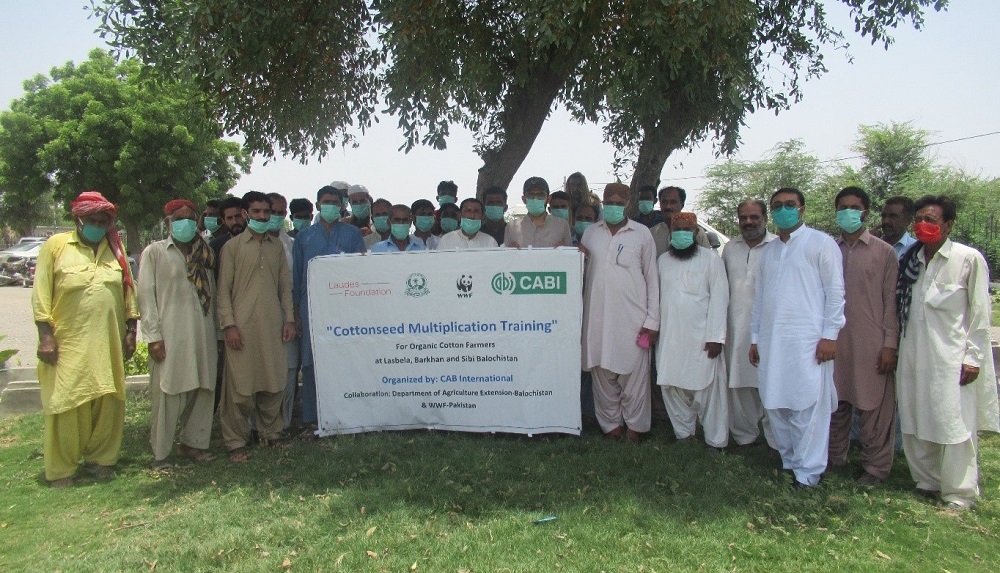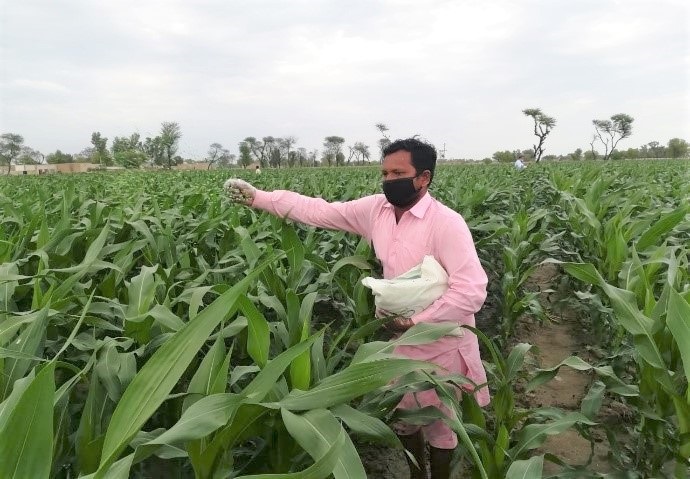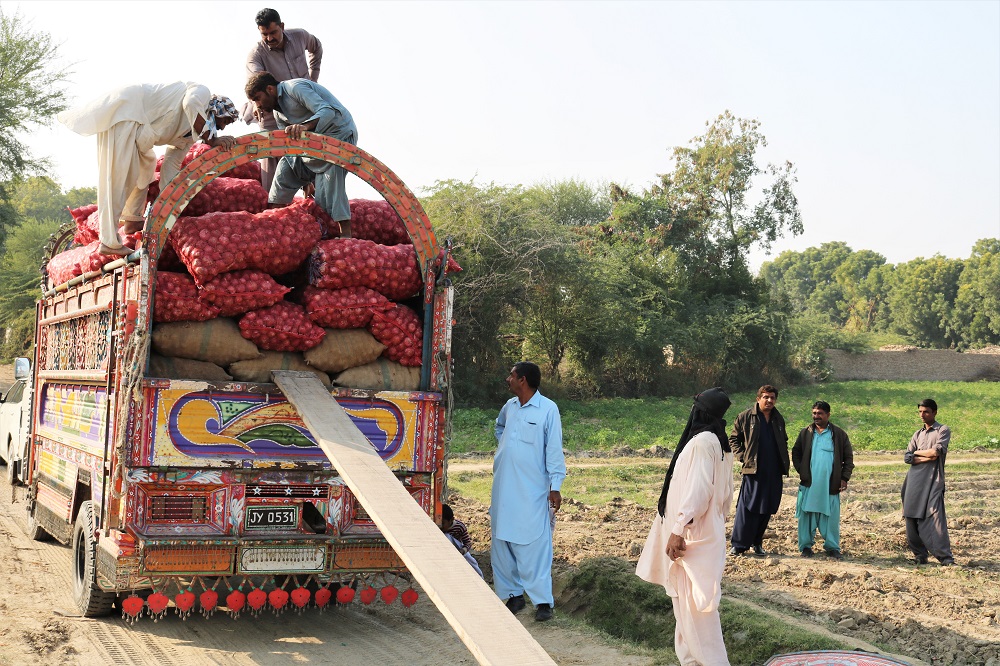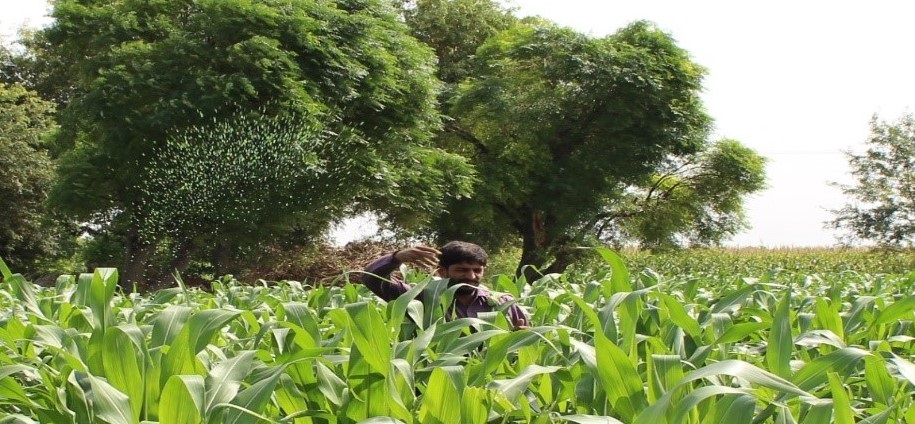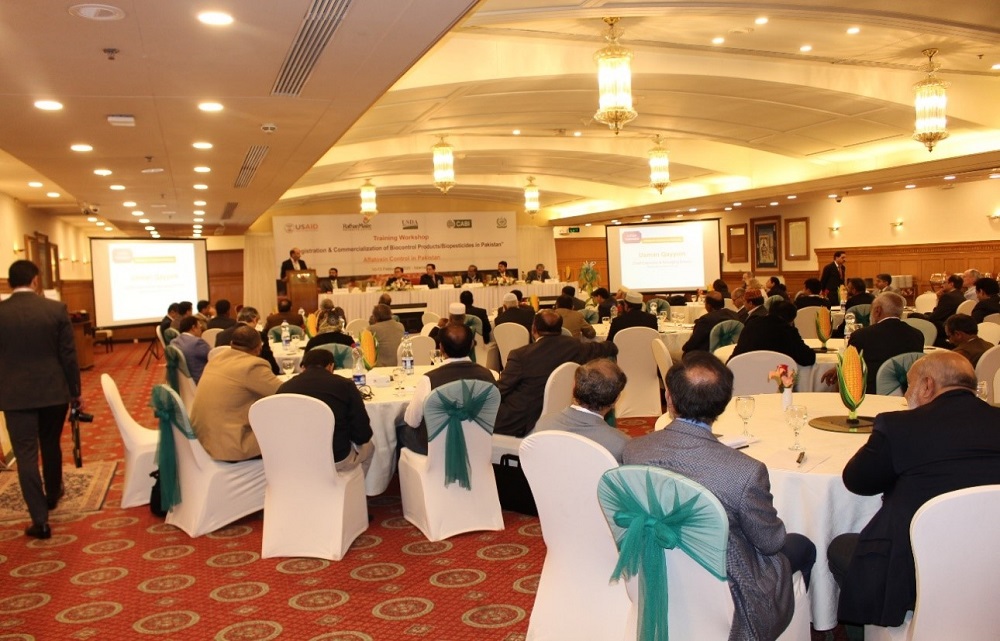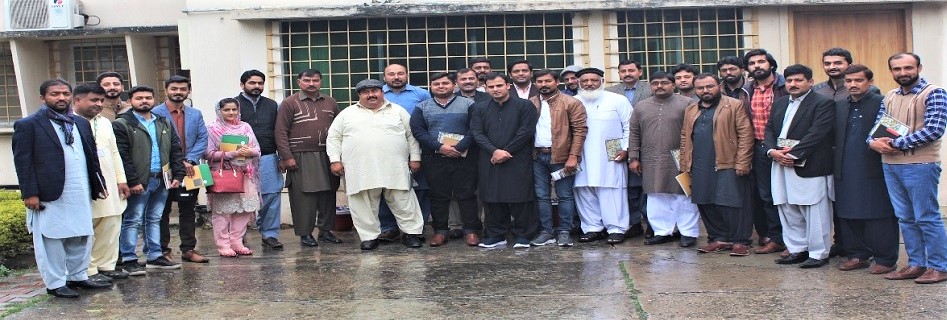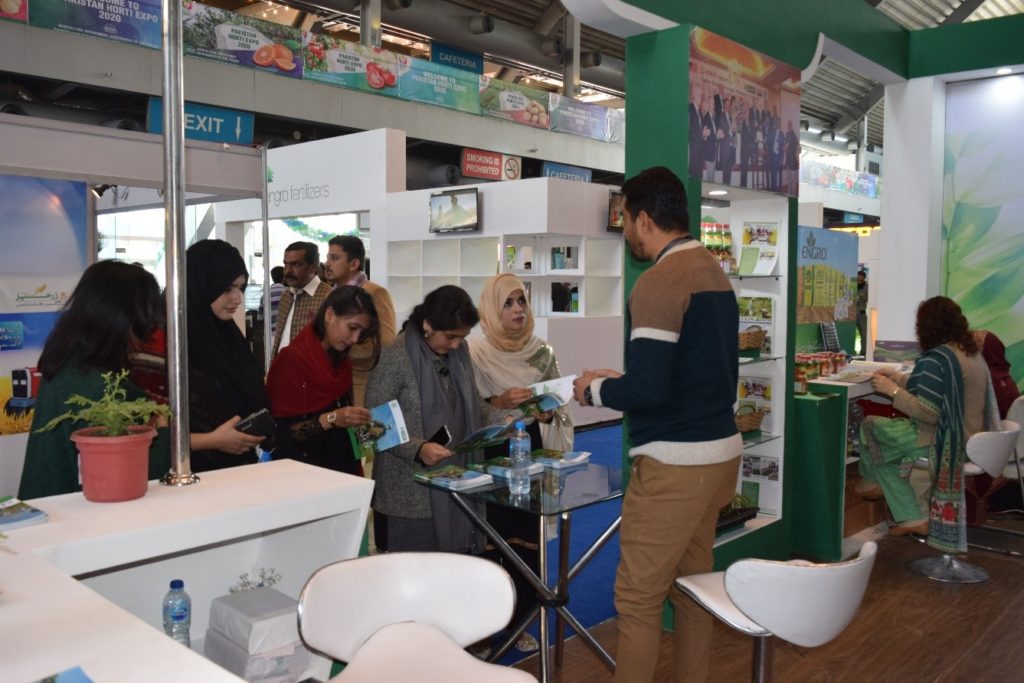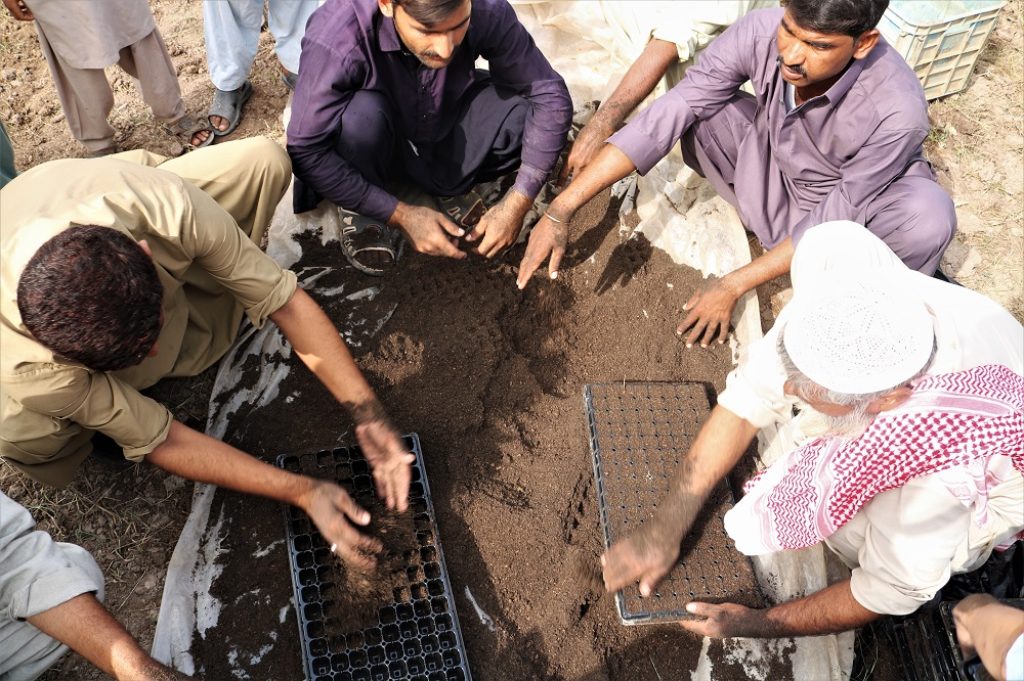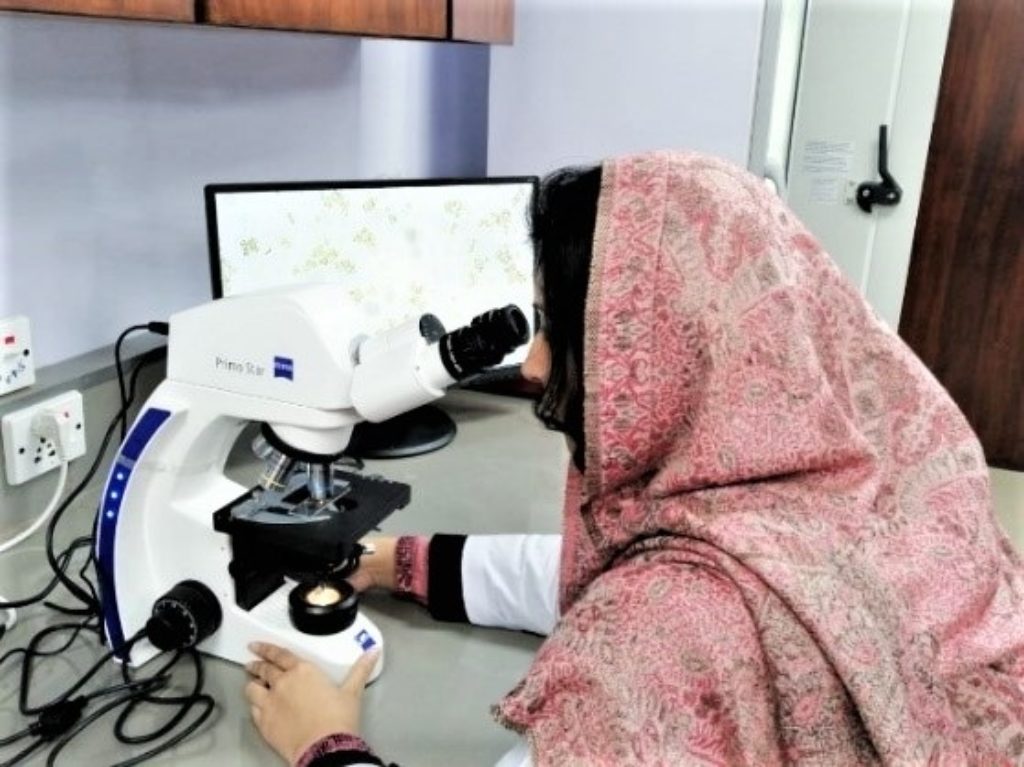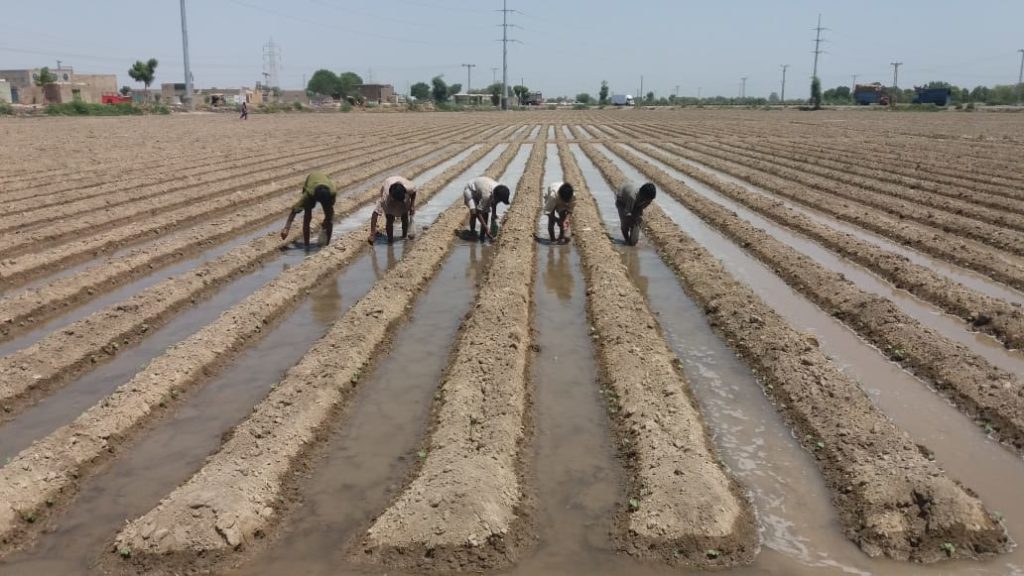CABI Blog
Tag: Pakistan
You are here: CABI Blog
Training of organic cotton farmers for seed multiplication
July 28, 2020
Ashfaque Ahmed Nahiyoon, Babar Latif Baloch
No Comments
Organic cotton refers to naturally cultivated cotton without the use of any synthetic agricultural chemicals, such as fertilizer or pesticides or transgenic technology, to secure sustainable, ecological and biodynamic agriculture. Organic cotton also promotes and enhances biodiversity and biological cycles and is beneficial to human health and the environment.
As a diamond cuts a diamond, ‘good fungus’ will reduce ‘bad fungus’ in maize crop
July 6, 2020
Sabyan Faris Honey
1 comment
CABI, along with its partners Rafhan Maize Products Co. Ltd and with the support of the National Agricultural Research Centre (CDRI, ASI), are busy evaluating the efficacy of AflaPak™ in Pakistan – a biological control agent/product for outcompeting the strains of aflatoxin producing Aspergillus flavus in maize.
Onion value chain interventions increase incomes for growers in Sindh province, Pakistan
June 30, 2020
Azeem Hayder, Muhammad Asif
2 comments
Mr Quraish and Mr Babar are both members of the Strengthening Vegetable Value Chains in Pakistan (SVVCP) onion farmer’s group, from the village Ibrahim Shah in district Tando Allahyar Sindh, who are keen on increasing their yields and sales of their produce.
AflaPak is on its way for maize growers to detain the toxic fungi in spring crop
April 27, 2020
Sabyan Faris Honey
1 comment
In Pakistan maize crop of the spring season is more likely to be contaminated with the exposure of aflatoxin due to the favourable conditions; temperature (75.2-109 °F) and of relative humidity (62-99%) during the crop life cycle. To minimize the level of aflatoxin each country/region has its own version of non-toxigenic strains growing naturally in…
AflaPak registration will pave the way to enhance the livelihoods of maize growers in Pakistan
March 31, 2020
Sabyan Faris Honey
No Comments
Pakistan has taken the regional lead to mitigate the aflatoxin issue in South Asia. USAID/USDA has joined hands with CAB I to lead this new initiative in collaboration with the National Agricultural Research Centre (NARC) and Rafhan Maize Products Co. Ltd. This will help to safeguard the health and nutrition of Pakistan people.
Cotton industry stakeholders from Punjab familiarized on aflatoxin management through ‘green’ technology
March 16, 2020
Sabyan Faris Honey
No Comments
Aflatoxin contamination in food, feed, and agricultural produce is a matter of concern around the world because of their carcinogenic, metabolic, mutagenic, immunosuppressive, and teratogenic effects. Aflatoxin M1 (AFM1) is the monohydroxylated derivative of aflatoxin B1 (AFB1), developed in the liver of lactating animals during metabolism and further excreted into the raw milk of cattle…
Raising awareness on Parthenium at Pakistan Horti Expo 2020
March 12, 2020
Umair Safdar
No Comments
As part of the ‘Establishment of Model Farms’ project initiated by the Government of Punjab’s Agricultural Department, a two-day Pakistan Horti Expo held at the Expo Centre, Lahore, from 22-23 January 2020. The event urged key ‘players’ in agricultural value chains including smallholder farmers, processors, wholesalers, distributors, retailers and exporters to help boost the country’s fruit and vegetable exports.
Farmers learn advanced nursery raising techniques to strengthen Pakistan’s vegetable value chains
February 28, 2020
Babar Bajwa, Muhammad Asif
1 comment
Onion and chilli farmers from villages in Pakistan’s Sindh province have come together to learn best practices of vegetable nursery raising as part of the CABI-led Strengthening Vegetable Value Chains Project (SVVCP) project funded by the Australian Centre for International Agriculture Research (ACIAR). The farmers from Ibrahim Shah and Khari Mohammad of district Tando Allahyar…
First biological control laboratory created in Pakistan to research poisonous aflatoxins
February 19, 2020
Babar Bajwa, Sabyan Faris Honey
1 comment
The first biological control laboratory to research poisonous aflatoxins has been created in Pakistan as part of a collaboration between CABI and the Crop Diseases Research Institute (CDRI) at the nation’s National Agricultural Research Centre (NARC). The facility, under the Aflatoxin Control Programme in Pakistan, aims to ensure the state of food security in the…
‘Sowing the seeds’ for organic cotton in Pakistan
February 5, 2020
Ashfaque Ahmed Nahiyoon, Babar Bajwa
3 comments
CABI, under its Cotton Advocacy for Policy and Seed (CAPAS) Project with funding from the C&A Foundation, is making good progress to support the procurement, production and certification of non-GMO cotton seed as well as the development of organic cotton policy in Pakistan.
Subscribe to blog
DISCLAIMER
Views expressed in contributions do not necessarily reflect official CABI positions.
Archives
Categories
- Agriculture and International Development
- Veterinary and Animal Sciences
- Climate change and biodiversity
- Publishing
- Value chains and trade
- Crop health
- Environmental Sciences
- Human Sciences
- Tourism, Hospitality and Leisure
- Food and nutrition security
- Plant Sciences
- Gender and youth
- Digital development
- Development communication and extension
- Economic development
- Invasive species
- CABI Bioservices
- One Health


